
"I'll Be Doggone" is a 1965 song recorded by American soul singer Marvin Gaye and released on the Tamla label. The song talks about how a man tells his woman that he'll be "doggone" about simple things but if she did him wrong that he'd be "long gone". The song was written by Smokey Robinson, Warren Moore and Marv Tarplin, initially for The Temptations, who rejected the song.

Tages were a Swedish rock band formed in Gothenburg in 1963. The group, whose original line-up consisted of Tommy Blom, Göran Lagerberg, Danne Larsson, Anders Töpel and Freddie Skantze, were one of the most successful Swedish bands of the 1960s. They achieved thirteen top-20 singles on Kvällstoppen, such as "Sleep Little Girl", "I Should Be Glad", "In My Dreams", and "Miss Mac Baren", as well as having two albums certified gold, Tages (1965) and Tages 2 (1966).
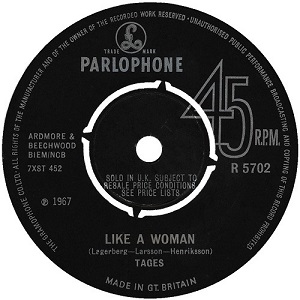
"Like a Woman" is a song written by Swedish producer Anders Henriksson, bassist Göran Lagerberg and guitarist Danne Larsson, originally recorded by Lagerberg and Larsson's band Tages in 1967. Tages recorded the track at EMI Studios in London. It was initially released on the band's fifth album Studio (1967), before being used as the B-side of their 1968 single "There's a Blind Man Playin' Fiddle in the Street". The title references a girl that Lagerberg knew and musically bases on characteristics of psychedelic pop, including guitars run through leslie speakers

Hep Stars on Stage is the first live album and second overall release by Swedish rock band Hep Stars. Released in November 1965 on Olga Records, the album is composed of recordings made on 7 and 8 August 1965 at two separate Folkparks in Trollhättan and Västerås, Sweden. Hep Stars on Stage, although not the first live album by a Swedish artist, was the first live recording of a Swedish rock group released.
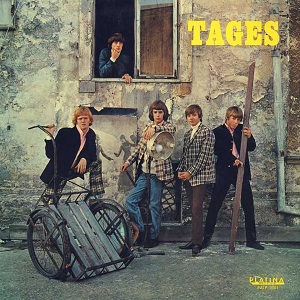
Tages is the debut studio album by the Swedish rock band Tages, released on 3 November 1965 on Platina Records. Released during a period in which the band had accumulated four top ten singles in Tio i Topp and as many on Kvällstoppen. This led the band to become one of Sweden's first and foremost pop groups, along with Hep Stars.

"No Response" is a song written by Benny Andersson, first recorded by Swedish rock group Hep Stars and released as a single in September 1965. The song was written in response to criticism drawn from other Swedish beat groups, including Shanes and Tages for their inability to write own material.

"Sleep Little Girl" is the debut single by the Swedish rock band Tages. It was written by Tommy Blom and released on 16 October 1964. The initial recording was made at a Youth center at Nylöse, a neighborhood of Gothenburg, Sweden's second biggest city, and the song has professionally been re-recorded in a studio twice.
"Crazy 'Bout My Baby" is a song first written and recorded by musician Robert Mosley in 1963. His third solo single, it failed to chart, leading to it becoming his final single released. Initially an obscure single, it was brought to light by mainstream acts such as The Swinging Blue Jeans and Tages, the latter of which charted in Sweden with it.

Tages formed in May 1963 as a duo and quickly expanded into quintet, though no music by them would be released until more than a year later, when their debut single "Sleep Little Girl" was released in October 1964. Up until October 1968, 23 singles by the group were released, though six of those were unauthorized. Out of these singles, 13 managed to reach both Kvällstoppen and Tio i Topp while two further singles only reached Tio I Topp. In 1969, the band changed their name to Blond and three further singles were released between July 1969 and July 1970, out of which one reached Tio i Topp. Combined under both names, the band released in total 27 singles between October 1964 and July 1970.
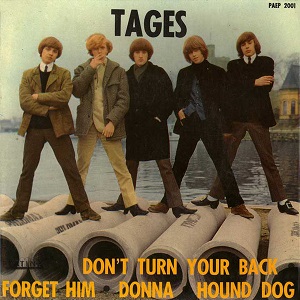
Tages is the first seven-inch extended play by Swedish rock group Tages, a release which features four songs, two of which showcase the early songwriting talent of the band. It was initially released on 4 June 1965 in 1000 copies on Platina Records.

"Don't Turn Your Back" is a song written by bass guitarist Göran Lagerberg and guitarist Anders Töpel, first recorded by their band Tages in 1965. Produced by the Violents Rune Wallebom, the song would be featured as the lead track from their debut EP Tages released three weeks later

"I Should Be Glad" is a song by the Swedish rock band Tages, written by bassist Göran Lagerberg and rhythm guitarist Danne Larsson in 1964. Following bad press for their debut single "Sleep Little Girl", the group quickly recorded a follow-up which critics would consider good.

Göran Bertil Lagerberg is a Swedish musician and singer-songwriter, best known as the bass guitarist and co-lead vocalist in Swedish rock band Tages and later progressive rock act Kebnekajse. In the 1990s, he was a member of supergroup Grymlings together with Magnus Lindberg, Pugh Rogefeldt and Mikael Rickfors.
Platina Records was a Swedish independent record label founded in 1964 by businessman and songwriter Evert Jakobsson. The label saw great success throughout the mid-1960s with rock acts such as Tages, before turning to dansband music in the 1970s, gaining success with Flamingokvintetten and Thorleifs. After turning to pay to play in 1984, the label shut down in 1989.

"The One for You" is a song written by Swedish guitarist Danne Larsson and recorded by his group Tages in 1965. Following an intensive tour of the Sweden, while also previously having composed songs for the band, Larsson wrote the song inspired by their trip to London, allegedly about a girl he had met there. It was the first recording by Tages produced by Anders Henriksson, who would come to produce the majority of their coming output, along with being their first single recorded at Europafilm Studios in Bromma, Stockholm.
"Someone's Taken Maria Away" is a song written by Chris Andrews, initially recorded by British singer Adam Faith and his backing group the Roulettes. It was Faith's final top-40 hit in the United Kingdom, reaching number 34 on the UK Singles Chart in June 1965. However, today it is most commonly known for the version recorded by Swedish band Tom & Mick & Maniacs under the title "Somebody's Taken Maria Away" in 1967; it reached number one on both Tio i Topp and Kvällstoppen during that autumn.

Tom & Mick were a Swedish band formed in 1965 in Enköping, Sweden. They were only active for three years though managed to release an album and a handful of singles, of which "Please, Please, Please" became their first hit. During their last two active years, they were fronted by Tommy Körberg (Tom) and Michael Johansson (Mick), one of the first dual-vocalist pop groups in Sweden at the time Retrospectively, they are best known for their single "Somebody's Taken Maria Away" which topped the Swedish charts, and for starting the career of Körberg, who would go on to become one of the most well known musicians in Sweden.

"Balladen om killen" is a song written by bass guitarist Göran Lagerberg, recorded by singer Örjan Ramberg. Inspired by the life of Ramberg, Lagerberg composed the song as a reflection over both their lives inspired by Bob Dylan's "Like a Rolling Stone". The song, which is in the Swedish language, tells the tale of an unnamed narrator, who during a walk along a country road, details incidents that recently occurred in his life, including moving away from home, tongue-in-cheek references to acquaintances and the court proceedings after being caught with cannabis.
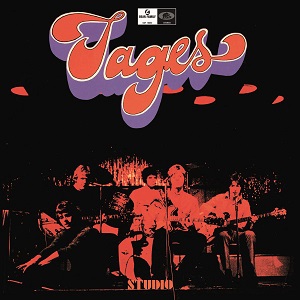
Studio is the fifth studio album by the Swedish rock band Tages, released on 4 December 1967 on Parlophone in Sweden. Following the success of their album Contrast, Tages began working on their follow-up to it. Hampered by a long summer tour, the album was largely recorded between October and November 1967, though sessions span all the way back to April. It was primarily recorded at Europafilm Studios in Bromma, Stockholm with Anders Henriksson producing. The band took a break in recording the album in October for a tour of England organized by Parlophone, which allowed them access to EMI Studios in London, where two of the albums tracks were recorded. One single was released from the album, "She's Having a Baby Now", though the sessions also produced the non-album single "Treat Her Like a Lady".
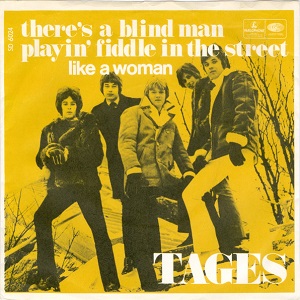
"There's a Blind Man Playin' Fiddle in the Street" is a song written by Swedish bass guitarist Göran Lagerberg, initially recorded by his band Tages. In December 1967, Tages released their fifth album, Studio, which largely was inspired by and saw influences from Swedish folk music; this had a major impact on Lagerberg. Inspired by the Beatles' single "Strawberry Fields Forever" / "Penny Lane" from a meeting with club owner Styrbjörn Colliander, Lagerberg composed the song in a more commercial tone than Studio, while still retaining the genre's influences. First released as a single on 8 February 1968 in Sweden, the song also received release in Denmark, Finland, Norway and the UK, where it was Tages' fourth single release.

















